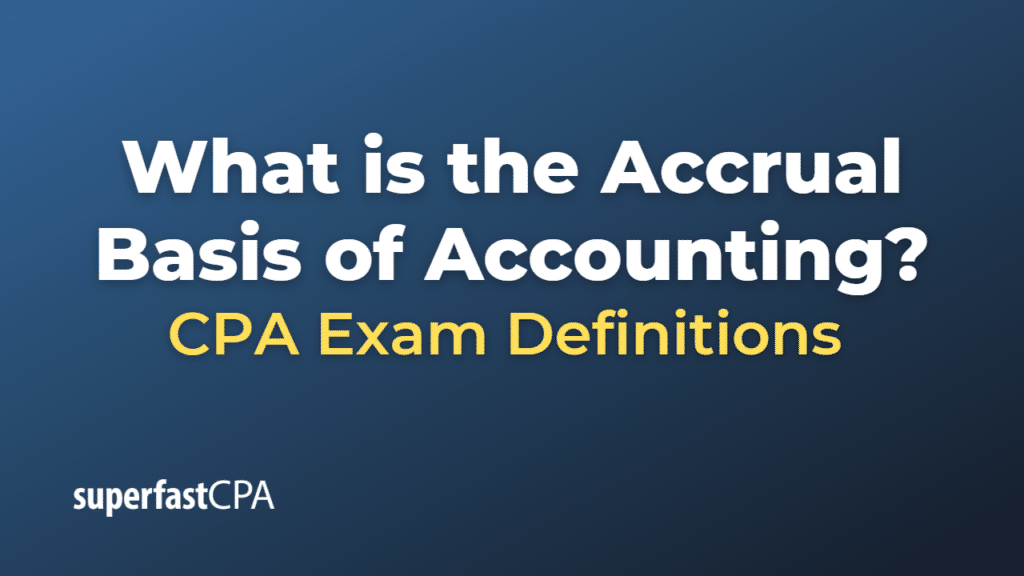Accrual Basis of Accounting
The accrual basis of accounting, also known as accrual accounting, is a method that records financial transactions when they are earned or incurred, rather than when cash is received or paid. The accrual basis of accounting follows the matching principle, which requires that revenues be recognized when they are earned and expenses be recognized when they are incurred, regardless of the timing of cash flows.
Under the accrual basis of accounting, the following principles apply:
- Revenue recognition: Revenues are recorded when they are earned, regardless of when the cash is received. For example, if a company provides services to a client in December but does not receive payment until January, the revenue would be recognized in December under the accrual basis.
- Expense recognition: Expenses are recorded when they are incurred, regardless of when the cash is paid. For example, if a company incurs utility expenses in December but does not pay the bill until January, the expense would be recognized in December under the accrual basis.
The accrual basis of accounting provides a more accurate and comprehensive view of a company’s financial performance and position than the cash basis of accounting, which records transactions only when cash is received or paid. Accrual accounting is the standard accounting method for most businesses and is required under Generally Accepted Accounting Principles (GAAP) in the United States and the International Financial Reporting Standards (IFRS) globally.
Example of Accrual Basis of Accounting
Let’s consider a hypothetical example to illustrate the accrual basis of accounting.
Imagine a company called “Green Landscaping” provides gardening and landscaping services to its clients. On June 15, Green Landscaping signs a contract with a client to maintain their garden for three months, starting from June 20. The total contract amount is $4,500, with the client agreeing to pay the entire sum at the end of the three-month period.
Under the accrual basis of accounting, Green Landscaping would recognize the revenue and expenses related to the gardening and landscaping services as they are earned or incurred, regardless of when the cash payments take place.
Here’s how Green Landscaping would record the transactions using the accrual basis:
- Revenue recognition: Green Landscaping provides gardening and landscaping services for the entire month of July. The company should recognize a portion of the $4,500 contract amount as revenue for July. Assuming equal revenue recognition for each month, the revenue for July would be $4,500 / 3 = $1,500. The journal entry would be:Debit: Accounts Receivable (Asset) – $1,500 Credit: Landscaping Services Revenue – $1,500
- Expense recognition: Suppose Green Landscaping incurs $800 in expenses related to the gardening and landscaping services provided in July, such as employee wages, equipment rentals, and fuel. Even though these expenses may not have been paid in cash yet, Green Landscaping would record them in July when they are incurred. The journal entry would be:Debit: Landscaping Services Expenses – $800 Credit: Accounts Payable (Liability) – $800
By using the accrual basis of accounting, Green Landscaping’s financial statements for July accurately reflect the economic activity related to the gardening and landscaping services. The revenue of $1,500 is recognized when it is earned, and the expenses of $800 are recognized when they are incurred, providing a more accurate picture of the company’s financial performance and position during the period.













